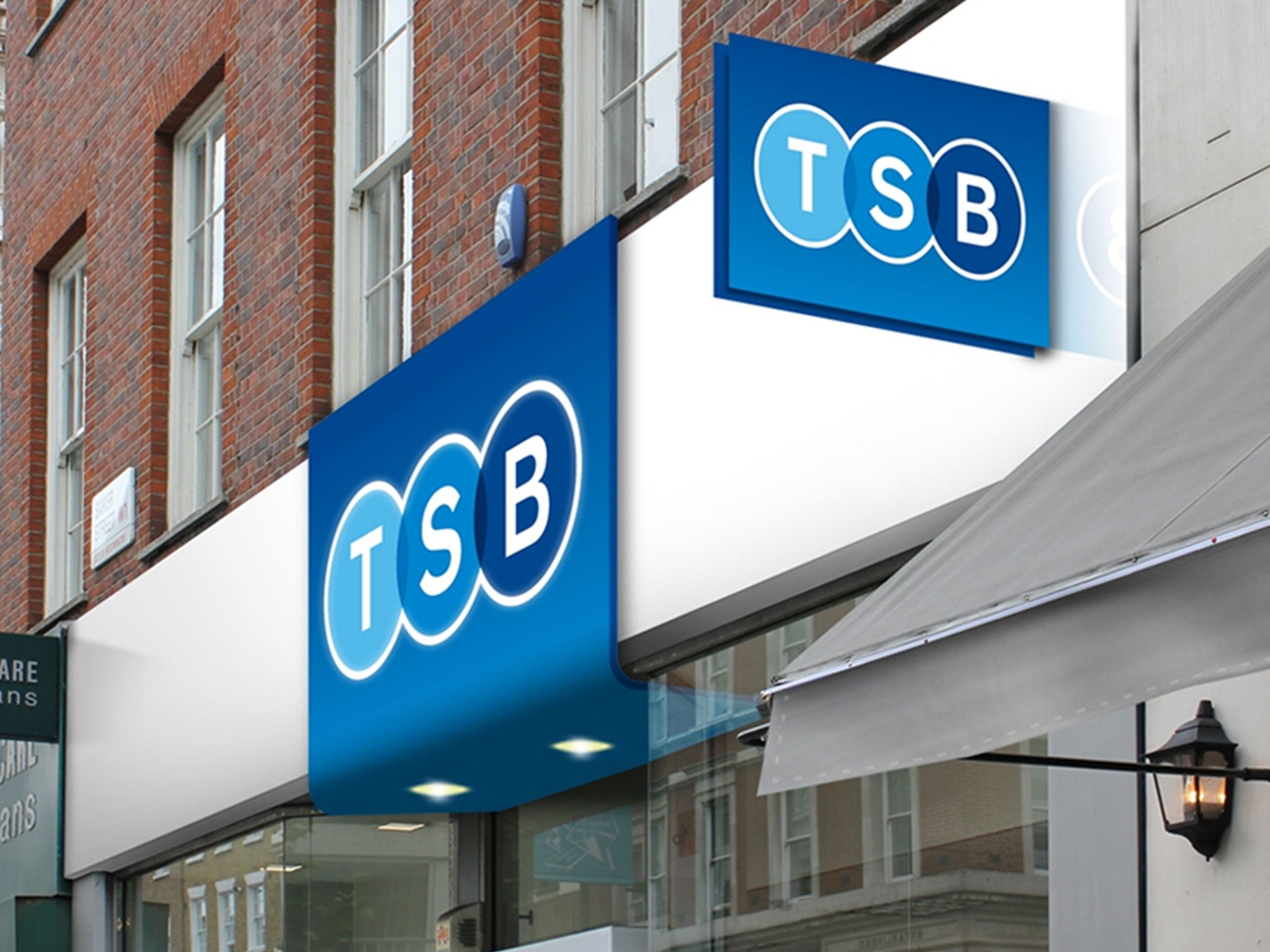Britain's first major new high street bank for decades as TSB is resurrected

Britain’s first major new high street bank for decades launches tomorrow in the resurrected form of TSB.
It consists of the 631 branches Lloyds was ordered to sell by Brussels in return for its state bailouts.
The change sees more than 4.6m Lloyds customers banking at those branches transfer to the new company. That is one in six of Lloyds’ entire customer base with more than £20bn of loans and customer deposits.
Tomorrow marks a key stage in a process that has seen many twists and turns for the earmarked branches known internally as Project Verde. They were to have been bought by the Coop but that deal collapsed in April when it emerged that the Co-op bank had a £1.5bn black hole in the accounts.
Lloyds had made Co-op its preferred bidder ahead of NBNK which offered £700m.
Now Lloyds will float TSB as a standalone company next year and has appointed JPMorgan and Citigroup to begin the process of talking to potential investors. A prospectus is expected to be issued in April with the float in mid-2014.
The whole process is to cost Lloyds about £1.3bn although Lloyds chief executive Victor Horta-Osorio, in testimony to MPs earlier this year, said the flotation option would cost the bank another £200m to £300m.
Due to the difficulties for Lloyds in offloading the banks, it has been granted an extension by the EU on the deadline for disposal, which was to have been in November 2013.
TSB is run by Paul Pester, the former Virgin Money chief who also led the integration of Santander’s various divisions.
Mr Pester, 49, has been preparing the split for the past two years, running the Project Verde operations on a twin track to prepare for either a sale or standalone flotation. Customers have already transferred to the new division, and it has been advancing its own loans despite still being owned by Lloyds.
But tomorrow will see the start of its formal new banking licence and will see the new TSB signage going up on branches across the country. That rebranding process is expected to take two days.
The TSB brand – famed for its catchphrase: “The bank that likes to say… Yes!” disappeared from the High Street two decades ago.
The new bank has its headquarters in 20 Gresham Street, which is on the site of the former London office of the original TSB.
Literature sent to customers in recent weeks suggests Mr Pester is planning to run the bank on the basis of being “local” in an attempt to differentiate it from the big multinational rivals. He will also play on the fact that it is not involved in “casino” investment banking and funding overseas businesses.
Re-birth for a lost staple of the British high street
Tomorrow’s launch will mark a re-birth of the TSB name on British high streets.
In 1810 the Reverend Henry Duncan established the first Trustee Savings Bank in Ruthwell, Scotland to help local families save and support them in times of financial difficulty due to accident or illness. Within five years such savings banks based on Rev Duncan’s model were operating across the country.
Over the decades it grew into a unified movement.
It floated in 1986 before merging with Lloyds in 1995. Lloyds disastrously bought HBOS, whose dangerously high risk corporate lending practices would have appalled Rev Duncan, during the financial crisis. The deal soon meant Lloyds had to be bailed out by the taxpayer – state support for which the European Commission demanded it offload more than 600 branches.
Join our commenting forum
Join thought-provoking conversations, follow other Independent readers and see their replies
Comments
Bookmark popover
Removed from bookmarks